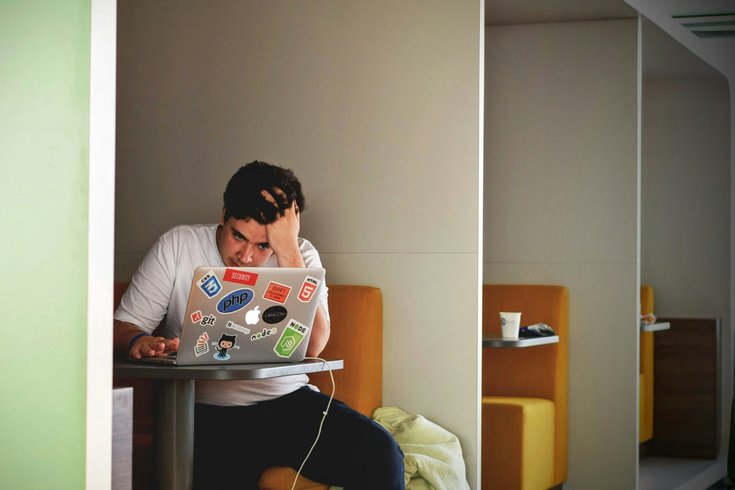
August 05, 2024
 Tim Gouw/Unsplash
Tim Gouw/Unsplash
Exerting more mental effort is strongly associated with experiencing negative feelings, a new study shows.
People are often encouraged to think harder to work through challenging problems at school or work, and as many people know, exerting that extra brainpower frequently proves irritating.
The greater the mental effort that people put into their tasks, the higher level of unpleasant feelings — like frustration, irritation, stress or annoyance — that they may feel, according to a study published Monday in the American Psychological Association's Psychological Bulletin.
"Managers often encourage employees, and teachers often encourage students, to exert mental effort," the study's senior author Erik Bijleveld, of Radboud University in the Netherlands, said in a release. "On the surface, this seems to work well: Employees and students do often opt for mentally challenging activities. From this, you may be tempted to conclude that employees and students tend to enjoy thinking hard. Our results suggest that this conclusion would be false: In general, people really dislike mental effort."
Researchers analyzed 170 studies, published between 2019-2020 and involving 4,670 participants, to examine how people experience mental effort. The studies included health care workers, college students, military members and amateur athletes from 29 countries. The range of cognitive tasks they performed included learning new technology, traversing unfamiliar environments, practicing a golf swing and playing a virtual reality game. The participants reported the level of effort they exerted as well as the extent of their unpleasant feelings.
Exerting more mental effort was strongly associated with greater amounts of unpleasant feelings – no matter the task or the population completing it, researchers found.
The association was less pronounced in studies conducted in Asian countries compared to those in Europe and North America. Researchers said this may be because high school students in Asian countries tend to spend more time on schoolwork and therefore may learn to withstand higher levels of mental exertion early in life. This fits with the idea that the aversiveness of mental effort may depend on a person’s learning history, researchers said.
Researchers said it's important for managers and educators to keep in mind the unpleasantness of mental effort when designing tasks or instructions, and to provide support or rewards when people need to use substantial brainpower. Additionally, researchers thought it was important to note that despite the uncomfortable qualities of mentally challenging tasks, people still voluntarily take part in them.
"For example, why do millions of people play chess? People may learn that exerting mental effort in some specific activities is likely to lead to reward," Bijleveld said. "If the benefits of chess outweigh the costs, people may choose to play chess, and even self-report that they enjoy chess. Yet, when people choose to pursue mentally effortful activities, this should not be taken as an indication that they enjoy mental effort per se. Perhaps people choose mentally effortful activities despite the effort, not because of it."
Follow Franki & PhillyVoice on Twitter: @wordsbyfranki
| @thePhillyVoice
Like us on Facebook: PhillyVoice
Have a news tip? Let us know.